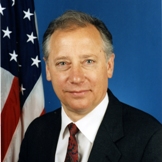Cyrano’s Theater Company in partnership with
The Alaska World Affairs Council Presents
“The Great Game: Afghanistan”
with special guest
Ambassador Peter Tomsen

Thursday, 17th November, 2011 – Cyrano’s Off Center Playhouse
Program begins at 7:00 p.m.
Free event, donations appreciated
” ‘The Great Game’ was a term used for the strategic rivalry and conflict between the British Empire and the Russian Empire for supremacy in Central Asia. The classic Great Game period is generally regarded as running approximately from the Russo-Persian Treaty of 1813 to the Anglo-Russian Convention of 1907. Following the Bolshevik Revolution of 1917 a second, less intensive phase followed. The term ‘The Great Game’ was introduced into mainstream consciousness by British writer Rudyard Kipling in his novel Kim (1901).” –preface to “The Great Game: Afghanistan”
“The Great Game: Afghanistan” is a three-part seven-and-a-half hour survey of foreign intervention over the centuries in Afghanistan. It is comprised of twelve short plays, but it is much more than that–it is about the culture, history, and people of Afghanistan and basically explores the complicated history of Afghanistan. Each of the plays was written by a different playwright, including Lee Blessing.
The original producers’ (London’s The Tricycle Theatre) Artistic Director Nicholas Kent has given Cyrano’s Theatre Company special permission to present this reading. Earlier this year, “The Great Game” was produced by the Shakespeare Theatre in Washington DC, with special performances for Pentagon personnel. The Tricycle Theatre also toured the play to The Guthrie Theatre in Minneapolis and The Public Theatre in New York City.
This reading will feature only a selection of plays from “The Great Game: Afghanistan”. There are three parts:
Part One: Invasions and Independence 1842-1930
Part Two: Communism, the Mujahideen and the Taliban 1979-1996
Part Three: Enduring Freedom 1996-2010
To watch an excerpt of part 1 of the play click the video!
There have been ten years of fighting, an investment of over $400 billion by American taxpayers, and the deaths of more than 2,700 allied military personnel, not to mention an unknown number of Afghans. It is also important to address the billions of dollars lost to corruption in the name of “reconstruction”.
“One can only weep at the thought of how much blood and treasure have been expended in this pursuit and how utterly ungreat this game has been in retrospect. No one ever wins for long, and all they win is a bill.”–Thomas Friedman
It is the hope of this reading that audiences will learn more about how the policy has evolved and how lessons from the past could be used for more informed action in the future and to give audiences a better understanding of the culture and history of a country that remains high-up on the global news agenda.
“Great historical crimes reproduce themselves. One injustice breeds new generations of injustice. Suffering roles on down through the years, becomes a bleak patrimony, the only inheritance for the disinherited, the key to history, the only certain meaning of life. Sorrow proliferates, evil endures, the only God is the God of vengeance. Hope dies, the imagination withers, and with it the human heart. Confronted with the massacre of innocent people, we quibble rather than act; the death of children becomes a regular feature of our daily entertainment period. Technology offers oppressor and oppressed alike efficient and cost-effective means of mass murder, and even acts expressive of dissent, defiance, and liberation are changed by desperation, madness, the appalling progress of weapons development and the global arms market into suicide bombings, into brutal expressions of indiscriminate nihilistic mayhem.” –Tony Kushner
Pakistan is probably an even greater risk right now than Afghanistan. This is a country of 140 million, not 40 million as in Afghanistan, and with nuclear weapons and a standing army of half a million men, with reserves of another half a million. The situation is extremely vulnerable and fragile.
